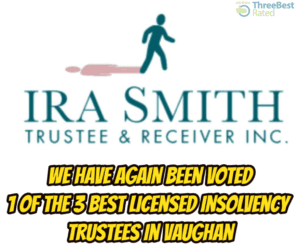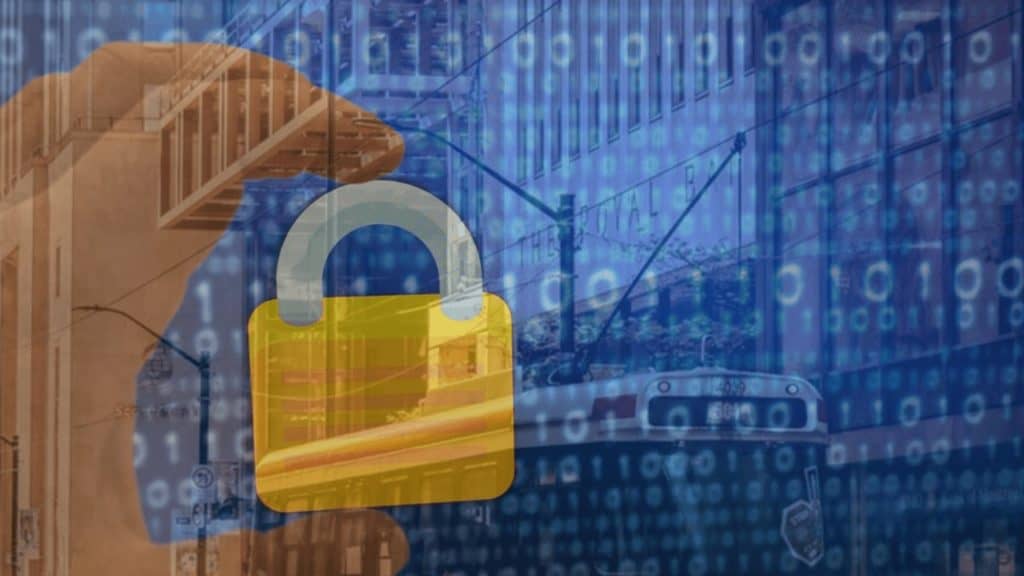The Canada Emergency Response Benefit (CERB Canada) has been closed but is not over
The government is ramping up its efforts to verify CERB Canada eligibility for payments made under the Canada pandemic support program. Many Canadians have been told to return some or all of the funds received in the past. The Canada Revenue Agency (CRA) and Employment and Social Development Canada are working together to ensure that those who received COVID-19 pandemic individual benefits were eligible for them. CRA also announced that they are sending out Notices of Redetermination to Canadians who were ineligible for some or all of the CERB Canada benefits they received.
The CERB Canada benefit was rolled out quickly and there was a lot of confusion about who was eligible for it. It was created to help those in Canada who the COVID-19 pandemic directly impacted. The program provided financial assistance to employees and self-employed workers. The benefit was worth a maximum of $2,000 every 4-week period for up to four months.
The issue that troubles me is that the benefit was mostly paid to people who otherwise would not have been able to afford rent or food. The CERB Canada benefit money was spent immediately and a long time ago. So if CRA and Service Canada have now determined that some people should not have gotten that benefit, what are those people supposed to do if CRA demands the money back?
In this Brandon’s Blog, I discuss what the options may be for people who receive a demand for repayment of the CERB Canada benefit.
Who was eligible for CERB Canada?
To qualify for the CERB payment from the government support program, you must have met certain conditions during the period you applied. The Government of Canada stipulated the following eligibility criteria:
- You did not look for or receive, CERB Canada or Employment Insurance benefits from Service Canada for the same qualification period.
- You did not stop your work willingly on your own. You were forced to stop your work by someone else.
- You are a Canadian resident who is at least 15 years old.
- You must have earned at least $5,000 (before taxes) in the preceding 12 months, or in 2019, from one or more of the following:
- job income
- self-employment income earnings
- benefits relating to pregnancy or parental leave from the province
The program was designed to help Canadian employees and self-employed Canadians who lost their jobs or saw a significant decrease in income due to the COVID-19 pandemic and the COVID-19 lockdown order resulting in business shutdowns. The program came to an end on December 2, 2020.
Sending your CERB Canada payment back
If you have received a letter from Service Canada asking you to repay an overpayment, the CRA says you need to follow the instructions on the letter to return the payment.
You will have the opportunity to provide more evidence to support your claim that you were entitled to the CRA’s full CERB benefit payment. Based on your responses, you may need to repay the full amount you received.
If you received any CERB Canada payments and they now say you didn’t fit into the group of eligible workers, you have the option to pay back what you owe in full right now or over time. They expect you to repay it in full either way.
Now consider this. The federal government paid nearly $12 million in CERB Canada payments to more than 1,600 people with foreign addresses during the first seven months of the pandemic! How did that happen if one of the criteria of this program was you had to be a resident of Canada?
The way the CERB Canada benefit is taxed is by taking it out of your paycheque – wasn’t that enough?
The CERB Canada benefit was not a grant or any other kind of freebie. Anyone who received it had to include it in their taxable income. That is fair because the benefit was meant to replace lost income.
In April 2020, Prime Minister Trudeau announced that the Government of Canada would be taking extensive and decisive action to support Canadians and businesses who were struggling due to the COVID-19 global pandemic through an expansion of this program.
The Prime Minister went on to say that no Canadian should have to choose between protecting their health, putting food on the table, paying for their medication or caring for a family member. He said this is why the government introduced the CERB Canada Benefit, a taxable benefit.
There have even been CRA, Employment and Social Development Canada and court decisions confirming that the CERB Canada payments are taxable and that it was definitely not a free ride. The demand for repayment of benefits from Canadians who CRA and Service Canada now feel were not eligible workers seems totally anti-social. The program was rolled out hastily and under unclear, confusing circumstances, and Canadians have been paying income tax on the benefits they received. Surely our federal government has better places to spend its time clawing back wasteful spending.
Mom was shocked when her maternity leave benefits were cut in half due to the CERB Canada benefit
A mother was shocked to see that her most recent parental benefits instalment had been cut in half. She said that maternity and parental benefits are paid to parents so they can take time off from paid work to do another kind of work: care work.
She was receiving half of her parental leave benefits for three weeks, which were already about half of her regular earnings. The reason for the reduction was because it was determined that the CERB Canada benefit she received for every four-week period, increased her income to the point where the reduction was warranted.
Then she received a demand for repayment. She hadn’t expected to have to repay the benefit. Shortly after the COVID-19 outbreak hit in March 2020, she was let go from her work because there wasn’t enough work to go around. She thought she qualified under the eligibility requirements for the CERB Canada benefit.
She couldn’t repay the full amount in one shot so she tried to arrange a repayment plan with CRA. She said that she had to fax about a dozen documents and field several questions from federal government employees to prove she is experiencing “financial hardship” in order to qualify for a payment plan. I don’t understand why payment plans have to be approved rather than just being automatically set up. These are not rich people that they are demanding repayment from, so why make them jump through hoops?
The British Columbia court has ruled that the CERB Canada payment must be deducted from the damage award for wrongful dismissal
Here is another example that the CERB Canada benefit is not a tax-free payment or a non-taxable grant. In Reotech Construction Ltd. v Snider, 2022 BCSC 317 the trial judge awarded the employee damages for a 4.5-month reasonable notice period and declined to deduct his CERB Canada payments.
After reviewing the case, the Supreme Court of British Columbia decided that the original trial judge was incorrect in choosing not to reduce the damage award by the $9,000 in benefits received. The court decided that these payments should be deducted from the award.
There was no indication that the employee would have to repay the CERB Canada benefit to the government. If the CERB payments are not deducted, then the employee would be in a better position than if there had been no breach of the employment contract. The employee would not have received the benefit if he had not been dismissed, making the benefit an indemnity for the wage loss caused by the dismissal.
How to repay the CERB Canada benefit
If you received the CERB Canada and now find out that you did not meet the eligibility requirements, as shown above, you must repay the money. There are a few different ways that you can repay the amount demanded.
The easiest way to repay the CERB Canada amount is through your online service CRA My Account. You can log into your account and select “Repay CERB” under the “My Account” tab. If you do not have a CRA online account, you can repay the amount you owe either by sending a cheque through Canada Post to the CRA mailing address you can find online. You can also pay it at your financial institution using the government-issued remittance form.
But what if you are just one of the many hard-working Canadian workers living paycheque to paycheque? What if you do not have the money to repay what they say you owe, either all at once or by taking an amount out of each of your future paycheques that CRA will agree to?
What if you cannot repay because the government stepped up its efforts to verify CERB Canada payments and made demands on you?
As stated above, if you cannot afford to repay the full amount being demanded of you all at once, you can hopefully convince CRA that you deserve a payment plan over time due to “financial hardship”. This assumes that the government is right that you were not originally entitled to the amount that you received for the CERB Canada benefit. But what if you cannot afford to repay it at all, no matter what sort of payment plan you can enter into?
The outcome will depend on if you are insolvent. Being insolvent doesn’t necessarily mean bankruptcy. Insolvency (aka financial failure) is a financial condition that occurs when a person or company doesn’t have enough assets to pay off all debts if they were to be liquidated. It also means that the person or company has stopped paying their bills on time in the normal course.
If the person is NOT insolvent, they are expected to sell assets or use cash on hand to pay their bills.
If you’re insolvent, you can take advantage of Canadian insolvency legislation, the Bankruptcy and Insolvency Act (Canada) (BIA). The debt to repay the CERB Canada benefit is an ordinary unsecured claim that will be eliminated through a successful financial restructuring under either a consumer proposal or a Division I proposal. As a last resort, you could also file for bankruptcy.
I would rather refer you back to some of my earlier Brandon’s Blogs that go over the requirements for each insolvency option, rather than go through all of them individually here. They are:
- Consumer proposal –CONSUMER PROPOSAL TORONTO: THE COMPLETE #1 WAY TO ELIMINATE DEBT IN ONTARIO
- Division I Proposal –THE EASIEST WAY TO ACTUALLY LIKE WHAT IS A DIVISION i PROPOSAL ONTARIO
- Personal bankruptcy – BEYOND BANKRUPTCY SERVICES: OUR BEST PERSONAL INSOLVENCY FAQ 2 JUMPSTART YOUR FINANCIAL LIFE
CERB Canada: Canadian workers now under fire
In summary, CRA now says it’s “time to pay up” for Canadians who were paid the CERB Canada benefit during the pandemic. Although CRA has a right to claw back the amount if it is correct that the person was not eligible, what CRA’s insistence means for many Canadian workers is they now have to choose between paying back their CERB or paying for food, rent or medicine.
This is so ironic because the benefit payments were designed to help those people in making those payments when their incomes dried up. The amounts were taxed so the government earned income that way. Now they are causing unneeded stress and worry to the people they aimed to help.
I hope this Brandon’s Blog was helpful to you in understanding more about this problem now facing many Canadians. If you or your company has too heavy a debt load, we understand how you feel. You’re stressed out and anxious because you can’t fix your or your company’s financial situation on your own. But don’t worry. As a government-licensed insolvency professional firm, we can help you get your personal or corporate finances back on track.
If you’re struggling with money problems, call the Ira Smith Team today. We’ll work with you to develop a personalized plan to get you back on track and stress-free, all while avoiding the bankruptcy process if at all possible.
Call us today and get back on the path to a healthy stress-free life.

 Full disclosure:
Full disclosure: 
